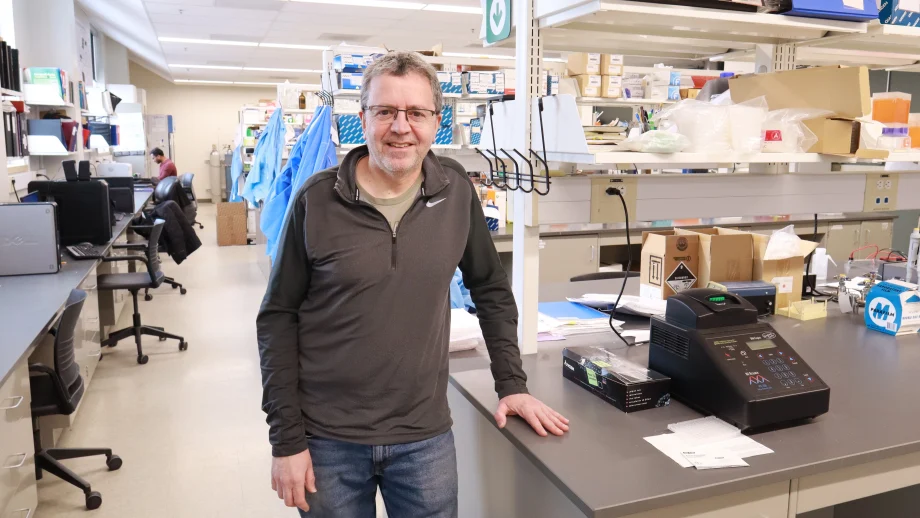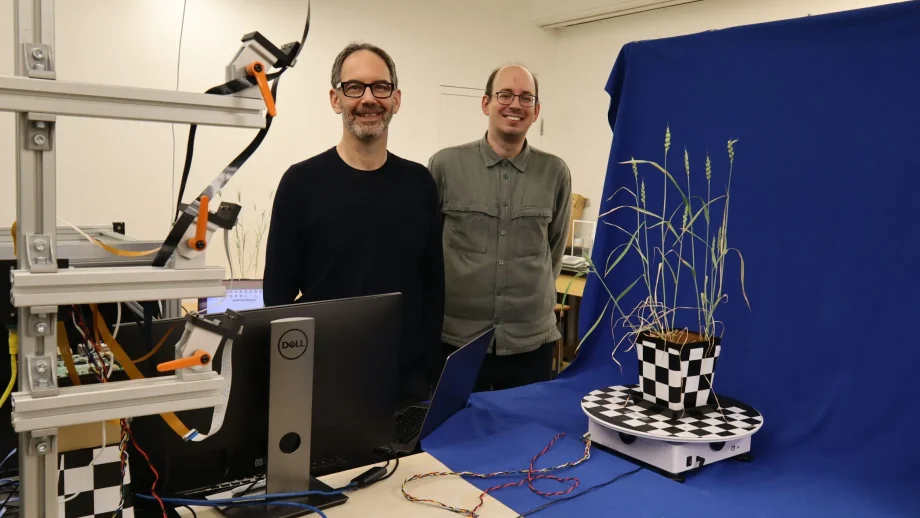WINNIPEG, MB -The University of Winnipeg’s Dr. Jeffery Martin, Physics professor and Canada Research Chair in Fundamental Symmetries in Subatomic Physics, is joining forces with a lead scientist in Saskatoon to further develop a viable solution to Canada’s critical medical isotope shortage. Dr. Mark de Jong is the Director of Accelerators with Canadian Light Source at the University of Saskatchewan, Saskatoon. Today The University of Winnipeg and Canadian Light Source entered into a Memorandum of Understanding which establishes a framework for technical and scientific collaboration, with the aim of producing medical isotopes using Linear Accelerator technology.
The goal is to produce Technetium-99m (Tc-99m) on a commercial scale, providing a solution to regional future medical isotope needs. An affordable and secure supply of Tc-99m is critical in that it is widely used to help detect cancers, blocked arteries and heart disease in millions of people around the world each year.
“The partnership with CLS announced today is significant because this arrangement allows our institution to work collaboratively with scientists in Saskatoon to lead Canada-wide efforts to bring electron linear accelerator technology to the forefront of medical isotope production,” said Martin.
The MOU, signed by UWinnipeg President and Vice-Chancellor Dr. Lloyd Axworthy, and Canadian Light Source Inc. Executive Director Dr. Josef Hormes, came into effect October 9, 2012 for a period of three years.
In June 2011, the federal government launched a process to find alternatives to replace the isotope supply from the deteriorating Chalk River nuclear facility, funding four projects across the country. This Prairie collaboration brings together scientists from both Manitoba and Saskatchewan involved in the two linear accelerator projects, which are developing clean and economical alternatives to the conventional nuclear reactor process. Major advantages of both projects include a lack of nuclear waste, the speed with which it can be commercially available and significantly lower costs.
UWinnipeg works within the PIPE consortium involving Pinawa’s Acsion Industries, the Winnipeg Regional Health Authority and through it, Health Sciences Centre Winnipeg. CLS has similar arrangements with the WRHA and Acsion for its project.
Using linear accelerators, a prairie-based commercial entity could produce enough medical isotope to provide for regional needs as well as for export to other North American markets.
“Our goal of developing commercial isotope production becomes a real possibility, with the research enabled by the MOU signed today,” said Axworthy. “This further enhances the efforts of UWinnipeg researchers who are at the forefront of medical imaging science, which has tremendous potential to be of direct benefit to Canadian families.”
Major funding for the PIPE and CLS projects has been provided by Natural Resource Canada’s Non-reactor-based Isotope Supply Program (NISP). Additional funding for the CLS project has been provided by the Province of Saskatchewan Crown Investments Corporation.
MEDIA CONTACT
Diane Poulin, Communications Officer, The University of Winnipeg
P: 204.988.7135, E: d.poulin@uwinnipeg.ca




